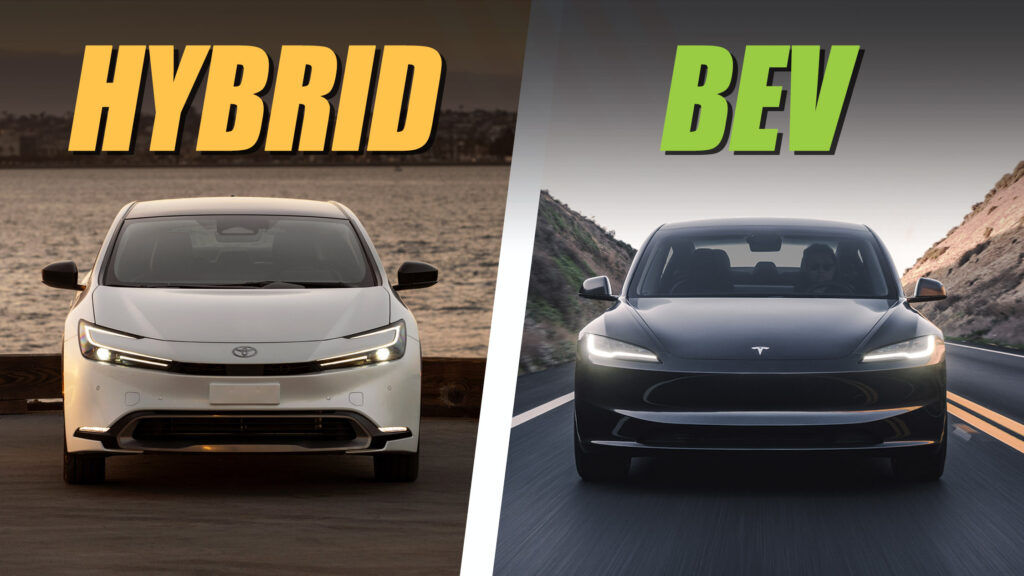Hybrids vs. BEVs: The Environmental Impact

Introduction
When it comes to vehicle lifecycle emissions, battery electric vehicles (BEVs) are the clear winners, especially when charged with renewable energy. A recent study by the International Council of Clean Transportation (ICCT) reveals the significant environmental advantages of BEVs over hybrids and internal combustion engine (ICE) vehicles.
Key Findings
- Hybrids can be up to 4.9 times dirtier than BEVs.
- Plug-in hybrid electric vehicles (PHEVs) are about twice as polluting as BEVs.
- ICE SUVs can emit up to 6.7 times more greenhouse gases than BEVs charged with 100% renewable energy.
Comparison of Emissions
For the average 2024 model year vehicles in the United States, self-charging hybrids emit 2.2 (sedans) and 2.5 times (SUVs) more greenhouse gases throughout their lifecycle compared to BEVs. Similarly, PHEVs emit approximately twice as much. ICE SUVs produce up to 3.5 times the emissions of equivalent BEVs.
Impact of Renewable Energy
When BEVs are powered entirely by renewable electricity, the emissions gap widens even further. Hybrid SUVs emit a staggering 4.9 times more greenhouse gases, while ICE SUVs emit 6.7 times more throughout their lifecycle compared to equivalent BEVs charged with renewable energy.
Future Projections
The study also projects the environmental benefits of BEVs in 2030. ICE SUVs from the 2030 model year are estimated to have 7.5 times higher emissions than equivalent BEVs powered by renewable energy. Additionally, the study suggests that PHEVs and hybrid electric vehicles (HEVs) have limited potential for reducing greenhouse gas emissions compared to BEVs.
Conclusion
The comprehensive analysis by ICCT highlights the significant environmental advantages of BEVs over hybrids and ICE vehicles. BEVs are projected to be 66-74 percent cleaner than ICE vehicles in 2024, and up to 85 percent cleaner when powered by renewable energy. The study emphasizes the importance of transitioning to electric vehicles for a greener future.
For more details, you can access the full study from the International Council of Clean Transportation here.

